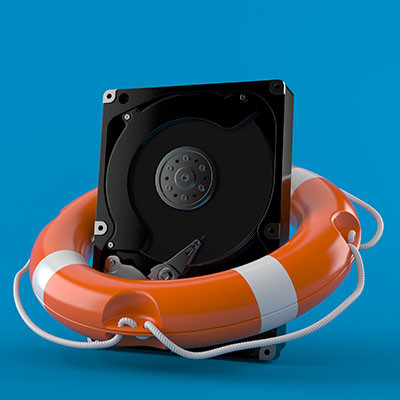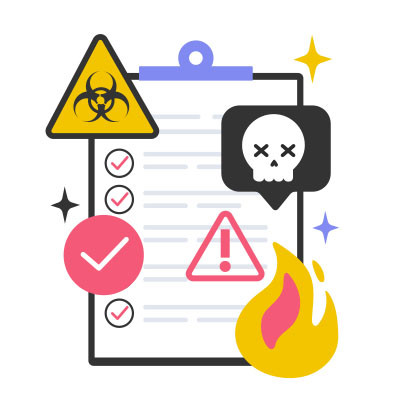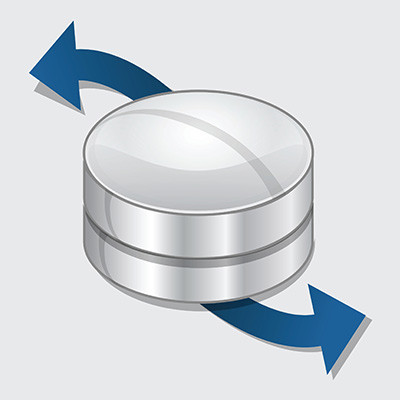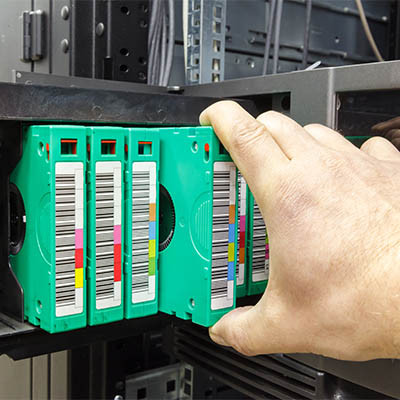Data loss is looming on the horizon, not just for you, but for all unprepared businesses. Are you confident in your ability to recover from a potential data loss incident? Like any IT challenge and risk, it helps to know what you’re up against, so today, we’re covering three of the most common data loss scenarios so you can be prepared for them well in advance.
Argentum IT LLC Blog
Do you know what goes into a successful data backup strategy? If not, know that your business depends on these contingencies to confidently face the challenges of today’s business world. Today, we’re breaking down the essentials of a sound backup strategy—and trust us when we say it’s more complicated than you think.
When your business’ data is so crucial to your successful operations, there are certain precautions that you simply need to take for the sake of your business’ longevity. One such precaution: data backup.
Your data is the gas that powers your business’ engine, whether you’re referring to project files and intellectual property or financial info and customer records. As such, imagine what it would mean if your business ran out of gas… or, more accurately, it was siphoned out.
Every business’ worst nightmare is a data loss incident, and if you’re caught unawares, such an incident can set you back financially and operationally for months. Today, we want to cover some of the common data your business collects that you absolutely need to have backed up. If you don’t, you could become subject to serious fines due to regulations and other industry-specific mandates.
Nowadays, businesses need to be prepared for almost every circumstance. You may have heard the term “BDR” used to describe a method of attaining this level of preparation. We wanted to discuss this term in more depth, covering what it refers to and what you need to do to protect your business should BDR be right for you.
Spoiler alert: it very much is.
How often do you think about your data backup system? If you’re like most businesses, it’s something that you will likely set up, then quickly forget about, provided you haven’t had to use it. Still, having one is essential to any modern business, and building it with clear outcomes and metrics in mind will help you make your data backup system more effective for the moments when you’re glad you have it.
Annually, on March 31st, World Backup Day serves as a dedicated reminder to highlight the pivotal role of regular data backups in ensuring the seamless flow of information. While this awareness day effectively emphasizes a foundational best practice, we strongly advocate for an ongoing commitment to the continuous maintenance and safeguarding of backups, extending well beyond the confines of a single day.
Business technology is known to be remarkably finicky, particularly if you do not have the requisite knowledge to manage and maintain it. After all, there is a reason why you hire an IT department or a managed service provider to handle this role. What happens if your technology fails, though? Do you have a plan in place? What does a plan like this even look like, anyway? Let’s dig into the details.
Your business’ backup and disaster recovery preparations are a critical part of your continued success as an organization, specifically, how they are measured by two key metrics: your recovery time objective (RTO) and your recovery point objective (RPO).
However, it’s important that you are able to determine what your organization can support in terms of your recovery time and recovery point objectives… but how does one do that?
In an era where businesses rely heavily on data and technology, the need for comprehensive disaster recovery solutions has never been more critical. The stakes are high when it comes to safeguarding your company's digital assets and ensuring business continuity in the face of unforeseen disasters. This is where Disaster Recovery as a Service (DRaaS) comes into play.
To safeguard your organization's invaluable digital assets, you must undertake a task that, in most other business aspects, is often avoided: building redundancy. Redundancy, though typically viewed as wasteful, takes on a critical role when it comes to safeguarding your data, which is the lifeblood of your business.
Having data redundancy is something that sounds like a bad thing. After all, redundancy is typically viewed as a reason for inefficiency. In the case of having your data and computing environments backed up, you are trying to build redundancy. Today, let’s take a look at some situations that a business can run into should they neglect to have a proper backup.
Data backup is a must-have for every business, but it isn’t enough to just copy your data. You will need to have a data recovery strategy in place to ensure that your business can effectively respond after a data loss incident. Today, we’ll take a look at why considering your recovery strategy early is important, and how to prioritize it with everything else going on with your business.
Chances are, you’ve gone through some old files and weeded through them, deleting what is no longer needed. This is especially important when you are upgrading your storage and getting rid of your existing storage media or an old computer. Let’s talk about what really happens when you’re doing so—chances are, you may be overlooking a serious security issue.
When you read about concepts like network security and data backup, you might come across the phrase “redundancy” or “redundant.” Depending on your familiarity with the business of IT solutions, you might think of this as an odd term to use to describe something incredibly valuable. Let’s take a look at what this word means, particularly in how it is portrayed in information technology.
Take a moment to imagine yourself in this scenario; you are going about your day-to-day business when all of a sudden, something profound happens to disrupt operations, grinding productivity to a halt and possibly even putting your company’s workers or infrastructure in jeopardy. No matter the disaster experienced, you need to have a plan in place to not only respond, but also recover from the incident in the most efficient way possible.
Businesses of all industries and sizes need to account for various disasters that could sink operations and lead to considerable costs associated with downtime. It is your responsibility as a business owner to identify what these disasters are and take steps toward addressing them, preferably before they become major problems that cost your organization time and money.




















